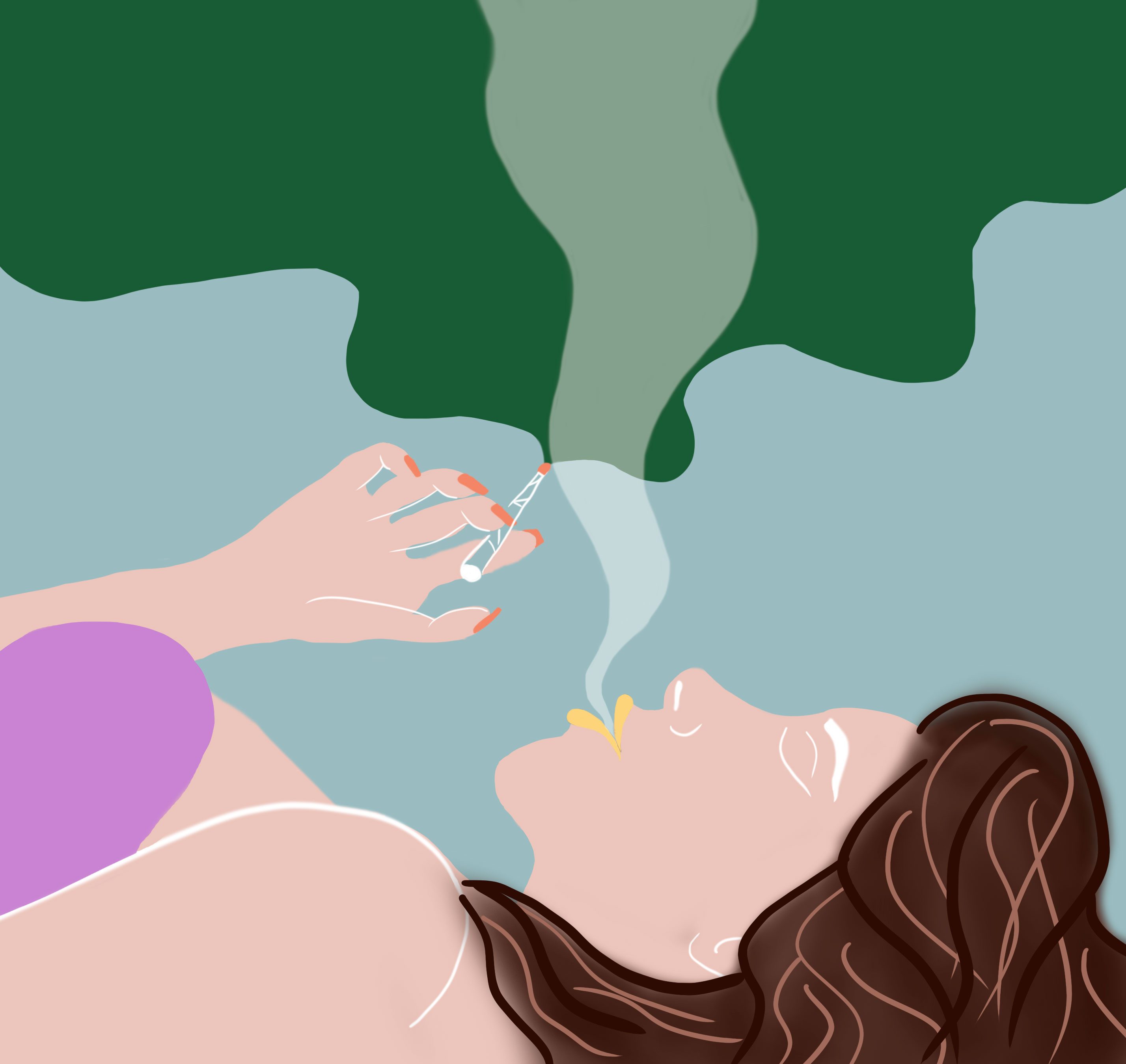
Welcome to THE HOT BOX, the Emerald‘s monthly column where TEDx talker, Ariel Sobel, gets heated about sex, cannabis—and basically anything else that would make your grandma spit up her Ensure Nutrition shake at the table! The winner of the Bluecat Screenplay Competition, Sobel is a grassroots activist against sexual and gender-based violence whose work been highlighted in KTLA, CBS, Yahoo, Univision, and Los Angeles Times.
![]()
It’s almost 2020, and you don’t need 20-20 vision to see that cannabis has medicinal uses. An increasing number of states in America are acknowledging this reality by legalizing medical marijuana to treat Alzheimer’s disease, ALS, cancer, epilepsy, and more.
Cannabis has the Ability to Treat Gynecological Conditions such as Endometriosis, Menopause, and Menstrual Pain
The power of cannabis to help women in pain is no modern revelation.
According to historians, the ancient Mesopotamians prescribed cannabis for gynecological ailments. Ancient texts document the use of the plant to alleviate menstrual cramps, bloating, menopause, and urinary tract infections. Hell, women in Europe even grabbed the green to help them give birth.
Taking inspiration from the 19th-century pothead Queen Victoria, a third of women use cannabis products to treat gynecological ailments today, reports the Public Health Division of the Oregon Health Authority.
THC is Handy for Anyone with a Vagina
Put in a tampon infused with THC, and it can abolish period cramps in just 20-minutes.
Mixing it in lube facilitates better orgasms. One way it does this is by reducing pain during intercourse, something that three-in-four women will experience in their lifetimes, according to The American College of Obstetricians and Gynecologists (ACOG).
Meanwhile, its anti-inflammatory effects are a revelation for women with endometriosis.
According to a recent Australian study, one-in-10 endometriosis sufferers use cannabis to manage their often debilitating pain.
Not to mention, cannabis is good for golden girls.
Scientists believe that smoking a joint could help your mom get through menopause, cooling her hot flashes, reducing the risk of her bones going brittle, and stopping her from getting depressed while watching Grey’s Anatomy again. (Though, it’s hard not to mourn McDreamy.)
Just Like Women are Discriminated Against in the Healthcare System, so are the Drugs That Can Treat Them
Why does weed remain illegal under federal law? Perhaps it’s not because it lacks any pharmaceutical properties–but because of what it is used for, or more precisely, who uses the plant.
Although there are many (stupid) reasons cannabis is criminalized, sexism is unquestionably one of them.
Bans on medicinal marijuana are just another extension of the disparities in experience and treatment women face in our healthcare system.
Misogyny in Medicine is Systemic—the Criminalization of Cannabis is a Side-Effect
Most drugs are produced for and tested on men. Multiple studies prove that women make up less than half of the subjects in clinical trials. Even male animals are tested on more than female fauna. Meanwhile, science research prioritizes male-centric health concerns; so far, there is only one-fifth of the number of studies on PMS as there are on erectile dysfunction.
Despite the fact that both men and women experience sexual dysfunction, there are considerably more medications for men than for women. In fact, there are dozens of medications on the market to treat male sexual dysfunction—but zero FDA approved drugs for women.
America has a long history of treating female health problems as unimportant. What’s even more alarming is that doctors across the country gaslight ladies who come forward with real health concerns.
Women’s’ pain is underplayed in emergency rooms. On average, we have to wait under its fluorescent lights 16-minutes longer than men.
Because cannabis has a unique ability to treat gynecological issues, it’s often not treated as a legitimate medicine. That’s because for too many, the medical conditions women suffer from are not deemed as legitimate illnesses.
Women and Genderqueer Individuals Don’t Just Face Misogyny, Cannabis is Being Subjected to it as well
Cannabis is one of the few effective treatments for endometriosis, a deeply under-researched and under-diagnosed condition that affects women.
“If you put ‘endometriosis’ into PubMed, you get about 1,800 pages of results. Liver disease [which is thought to affect a similar number of people] returns over 30,000,” notes Abby Norman in her book Ask Me About My Uterus, which investigates these inequalities.
For the average person with endometriosis, a diagnosis takes 10-12 years. For trans men or non-binary people with uteruses, the path to treatment is even more difficult.
Instead of simply letting ladies in chronic, excruciating pain smoke a blunt, doctors often encourage endometriosis sufferers to undergo a life-altering process like getting pregnant or giving up their uterus altogether.
The same goes for menopause. Any man can pop a blue pill to fix their dysfunctional dong (a symptom of aging that doesn’t involve hot flashes, insomnia, and depression). In contrast, cannabis, which provides relief for the peril of menopause, can only be used legally in 33 states.
It’s Time to Call Out the Criminalization of Cannabis for What it is: Discrimination
By Refusing Women this Medicine—or Refusing to Acknowledge it as Medicine—the U.S. Government is Subjecting Americans to Preventable Pain.
Legalization is a feminist issue. What is feminism, but the movement to lessen women’s pain, whether that be physical, emotional, or societal? Cannabis, unlike many doctors, scientists, and politicians is already doing just that.



Leave a Reply